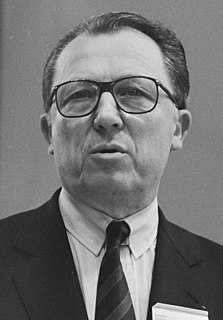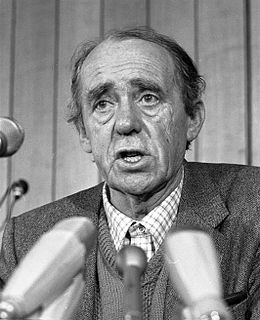A Quote by Milan Kundera
Common European thought is the fruit of the immense toil of translators. Without translators, Europe would not exist; translators are more important than members of the European Parliament.
Related Quotes
Usually the German translators do something terrible, especially with Tom Wolfe, which is that they make it local. So if the characters are from Harlem, the translators put all this Berlin slang into their mouths, and that's just terrible. You cringe when you read that. But there really is no good solution to the problem, except learning English.
Economically and politically, Germany is extremely stable. There are countries with functioning governments whose institutions don't work. My only concern is about Europe. There's a risk we will run out of time. We have been blessed with a pro-European French president, but we are also approaching the next elections for the European Parliament in 2019, and it will be important for pro-European parties present a credible answer to the anti-Europeans on the left and the right.
My objective is that before the end of the millennium Europe should have a true federation. The Commission should become a political executive which can define essential common interests... responsible before the European Parliament and before the nation-states represented how you will, by the European Council or by a second chamber of national parliaments.
I was in the second year of my PhD when I first had the idea - I'd recently started working as a translator, which meant firstly that I was hearing about amazing-sounding books from other translators, and also that I was getting enough of an insider's view of the publishing industry to be aware of all the implicit biases that made it so difficult for these books to ever get published, especially if they weren't from European languages (harder to discover, editors can't read the original, lack of funding programmes, authors who don't speak English).






































